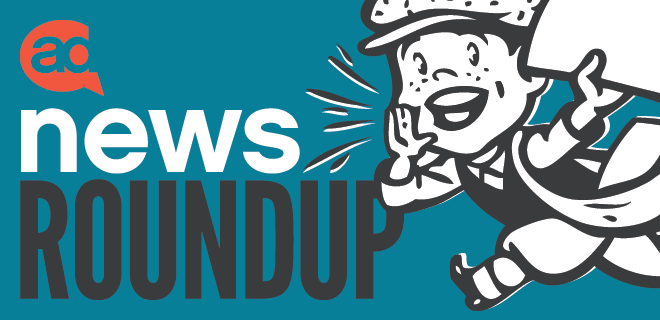
Discovery’s $40 Million Investment in Thrillist’s Parent Company
This week it was announced Discovery Communications would be investing $40 million in Group Nine Media, the company that owns Thrillist, NowThis, The Dodo and Seeker. That’s less major than their $100 million investment in Group Nine last year, but still very much something, especially in a climate where notable digital pure plays are posting lower revenues than expected, or laying off employees.
According to a Bloomberg news story (linked above), Group Nine’s strategy was to band together a group of digital pubs geared toward millennial audiences, and then partner with an established traditional media company. Discovery has reportedly been pleased with the arrangement. You can contrast Group Nine’s efforts with those of the prominent media companies that announced layoffs or lower-than-expected revenues in the last few weeks—Vice, BuzzFeed, Mashable, ESPN. Vice and ESPN both arguably flew too close to the sun, expanding quickly and recognizing later on how certain areas weren’t paying off. BuzzFeed put too many eggs in the native basket. Mashable had been one of those digital pubs that had “pivoted to video.” (Interestingly, Mashable also had sought investor funding for a few years, but sold to Ziff Davis for a fraction of what the company had been valued in 2016.)
100 Business-Side Layoffs Hit BuzzFeed
Speaking of which: BuzzFeed is the latest digital pub with news of the latter variety. On Wednesday, BuzzFeed CEO Jonah Peretti announced they’d be laying off 100 employees, or about 8% of their U.S. staff. The business and advertising side of the company is expected to bear the entirety of that blow: BuzzFeed is set to re-organize its business team and mix up its formerly native-heavy ad approach and add more programmatic banner ads to its sites. The programmatic side seems to be helping BuzzFeed, accounting for 25% of the company’s 2017 revenue. In spite of those layoffs in the native ad/branded content wing, the company is reportedly aiming to make strategic hires in growth areas like programmatic.
AppNexus Is In on Ads.txt
AppNexus’s DSPs are going to cut off ad networks that claim they have premium inventory to sell, but aren’t listed in the premium publisher’s ads.txt file. As many folks in the industry have observed, ads.txt is only going to lead to its desired outcomes (keeping money out of the hands of domain-spoofers and arbitrageurs) if it’s widely adopted and enforced. The adoption part, among publishers, had been really slow up until just a couple months ago. But over the course of the fall, Google announced it was going to require all transactions in DBM to pass ads.txt muster, and The Trade Desk started blocking sales that weren’t authorized via ads.txt. AppNexus is on track to join that club in January, when it’ll start requiring ads.txt approval.
NBCU: We Need Better Metrics, Transparency to Keep the Industry Afloat
NBCUniversal’s Chair of Ad Sales and Client Partnerships, Linda Yaccarino, pointed to the lack of consensus about ad placements and measurement for video in a cross-screen environment, and called it “a problem” that demanded “a meaningful plan for action and follow-up.” In a meeting of media, tech and advertising executives called by NBCU in a New York City restaurant this week, Yaccarino called for more transparency, more engaging ad experiences and better metrics, in order for the ad-supported model to work at all in the future. She even floated the idea of “reduc[ing] commercial time across the board.” Does it sound like what the execs are asking for is somehow related to attention-based metrics? I mean, maybe…
Artificial Intelligence Could Lead to a Malware Explosion
I know we’ve been talking a lot about how artificial intelligence has a lot of positive applications in digital media, which shouldn’t be feared. But in a post on Darkreading, Fortinet Global Security Strategist Derek Manky adds that AI also has negative applications that should totally be feared. AI, he says, will empower bad actors to act more quickly, less predictably, and more profitably. Manky describes the risks of morphic malware (not a new thing, but AI can make it more evasive and help it find security flaws more easily), the evolution of botnets to hivenets (directing corrupted devices toward targets, resembling a swarm formation), and “intelligent warfare” (where the clash between good and bad actors switches from individual devices to network systems).
David Kang Leaves His Position at Apple News
And one more thing this week: David Kang is leaving his position as Senior Director, Monetization and Strategy at Apple News. He’s held the position for a year, and at the moment Apple isn’t talking about why Kang is leaving—but according to Digiday, his next gig will be elsewhere under the Apple umbrella. Apple News, from a monetization standpoint, has come upon several roadblocks, including what can sometimes appear to be an anti-advertising stance from Apple itself. On paper, Apple News can appear to be a good alternative for publishers who want a large-scale mobile platform but aren’t keen on Google AMP or Facebook Instant Articles. But in practice, Apple News hasn’t always delivered desired revenue to pubs.